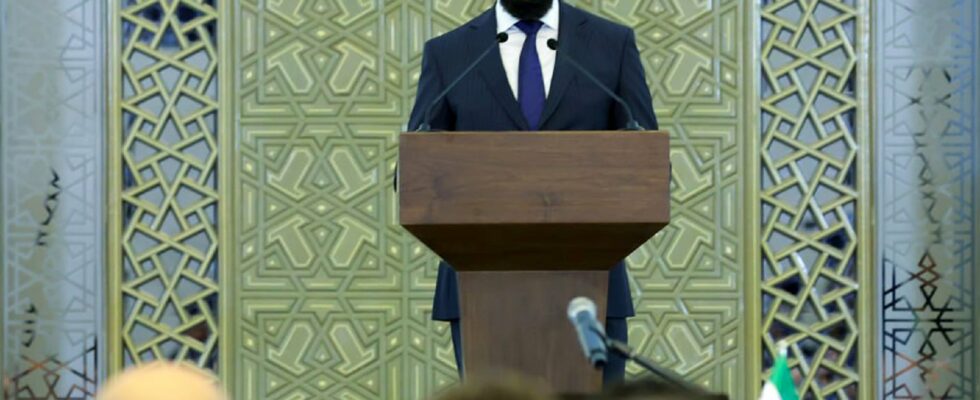Interim Syrian President Ahmed El-Charaa announced on Saturday March 29, the formation of a new government without Prime Minister, in which his faithful occupy the main positions but which aims to be inclusive and has a woman. In a speech during the ceremony announcing the government, Ahmed El-Charaa, who took power at the head of an Islamist coalition on December 8, said his will to “build a strong and stable state”.
The 23 ministers were sworn in before Ahmed El-Charaa during a ceremony at the presidential palace, broadcast by television. Foreign Ministers, Assaad al-Chaibani, and Defense, Mourhaf Abu Qasra, of the faithful of the interim president, retain their positions in the government. The head of general intelligence, Anas Khattab, also close to Ahmed El-Charaa, is appointed Minister of the Interior.
The government is more inclusive than the ministerial team which was responsible for the management of current affairs since the fall of Bashar al-Assad and which was led by Mohammad al-Bachir, who became Minister of Energy. Hind Kabawat, a Christian woman, is appointed Minister of Social Affairs and Labor. He also has at least one minister Druze, another Kurd and an Alawite. The chief of the white helmets, the Syrian rescuers who worked in rebel areas, Raed al-Saleh, is appointed Minister of Emergency Situations and Disaster.
Five -year transitional period
The announcement, initially scheduled for March 1, comes when the international community calls for an inclusive Syrian transition. It also occurs after massacres of a denominational nature in early March, which targeted the Alawites in the west of the country where this minority is concentrated from which the fallen president Bashar al-Assad came. The new authorities seek to reunify and rebuild Syria that a civil war over thirteen years has kneel.
Proclaimed interim president in January, Ahmed el-Charaa must manage the five-year transitional period. It is only after this period that elections must be held on the basis of a new constitution. Meanwhile, the Constitutional Declaration grants him full powers in the training of legislative, executive and judicial powers, although she claims to respect the separation of powers. According to the NGO Human Rights Watch, this constitutional declaration “gives the president considerable powers, particularly in matters of legal and legislative appointments, without any control or supervision”.
